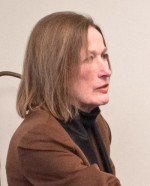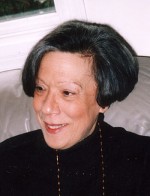Title
On February 13, 15, and 17, Juilliard Opera will present Don Pasquale, Donizetti’s 1842 opera buffa. The Journal asked vocal coaches and longtime faculty members Diane Richardson and Corradina Caporello a few questions about coaching generally and for this opera specifically.
Body
DIANE RICHARDSON
Why did you become a vocal coach?
I trained as a pianist, but eventually I realized I wouldn’t be an eight-hours-a-day-in-the-practice-room pianist. The attraction of words was very strong.
How do you feel about this opera?
Don Pasquale is just a smile—there are little musical gestures that are chuckles, and there are etchings of the character from the beginning. While working on it, we can laugh. People who haven’t seen much opera sometimes ask me what they should see—and this would be on the list. Bohème has the drama, but this is a frolic, it’s like Champagne.
What do you expect from your students when they start working with you before a performance?
Hopefully they’re prepared—I don’t want to teach notes anymore. But I need to start right where they are and take them further. The score doesn’t have to be memorized. I help them really study it in a musical sense—and later they’ll study it in a scholarly sense.
Is there anything in your coaching that’s surprised you recently?
I’ve been doing this for almost 40 years, and a week hasn’t gone by that I haven’t seen something new.
CORRADINA CAPORELLO
If you could wave a magic wand and have all your students know one thing, what would it be?
Learn how to become a superior musician and a faithful interpreter of the text (I guess that’s two things!).
Are there any particular challenges in preparing Don Pasquale?
One is to bring out the “comico” in the opera without falling into overused and devalued mannerisms. It is important to inspire the need for expression but not at the expense of the beauty of the voice (no coarse basso buffos, please!). Fortunately the singers in this cast have singularly beautiful instruments and brilliant preparation; they are boldly facing the challenge.
What’s the greatest challenge generally of preparing for an opera?
It lies in deeply understanding the musical idiom of the composer and finding the perfect balance between the text and the music. When this harmony is achieved, we may have done justice to the opera.
What’s the best thing about being a vocal coach?
I wake up in the morning knowing that my day is going to be filled with poetry and music—what could be more blissful? If I can transmit this joy to my students, my day is complete.






